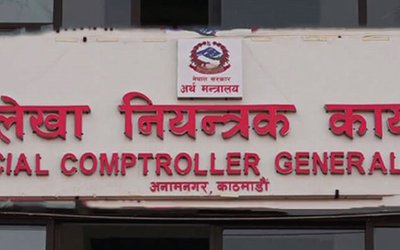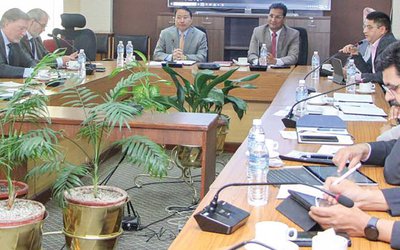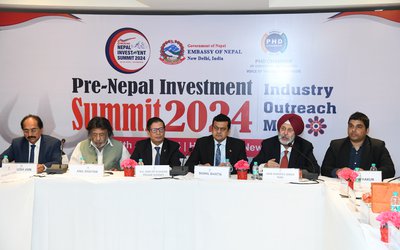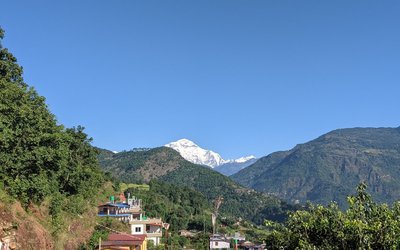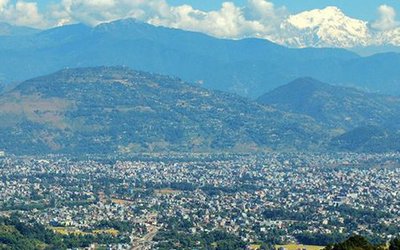As the people's long wait for a full-fledged constitution continues amidst clouds of doubt as to whether this Constituent Assembly will be able to promulgate one, the uncertainty and delay have had several negative impacts on the economy. When the very statute that determines the fate of Nepal’s economy is uncertain, how can we expect growth? What will be its implications to the commitments to achieve the Millennium Development Goals or to upgrade Nepal into the developing country's status?
Nepal has been receiving a significantly large amount of bilateral and multilateral aid in different sectors. It received 820 million dollars in 2010. In 2013, foreign aid occupied 23% of the national budget. To a foreign aid dependent country like Nepal, the current scenario, which is dominated by volatile governance, would have adverse effects. The donors who have diverted the resources into this country would want to see the aid yields results. But the delay in the constitution formulation process has raised questions over the credibility of the leaders, who are blamed for being more focused in power games than working for the national economy.
If uncertainty continues, the investment the country is receiving could be cut down significantly. From the donors’ perspective, it is apparent that the efforts to uplift the country are insufficient. This could make them reluctant to provide any kind of financial and technical assistance as political instability always threatens the effective use of the economic resources.
Unlike neighboring India, Nepal has yet to attract foreign investment owing to the lack of clear-cut policy and political stability. The FDI has not been able to generate substantial outcomes. Foreign investment is a major factor for boosting growth in Nepal. A country like India, which also sees sporadic political conflicts, has managed to post economic progress by inviting foreign investment. But Nepal has not been able to keep her economy unharmed from the ongoing political hassles. The moment political parties are in conflict; there is an immediate effect to the economy.
The constitution is what will shape Nepal’s future to a great extent. Experts have argued that it should not be bound with time limitations but by consensus. This is understandable, given the nature of Nepal's political turmoil. But how long should we wait is the question?
The constitution drafting process is adding burdens to the economy. On the one hand, the opportunity cost of spending numerous days and nights in drafting the statute is high. This time could have been diverted to productive sectors, had the statue been passed earlier. On the other hand, Nepal has already spent billions of rupees in the constitution drafting process in election, CA members' salary, etc. Further delay means that the government will have to keep spending more in this process. Thus, statute delay would add to this economic burden through many visible and hidden costs associated with it.
The political instability and state’s inability to create enough employment opportunities have forced the active population to go out of the county. As per a survey conducted by the Economist, Nepal stood eleventh in the list of countries with highest brain drain in 2011 with the score of 2.2, which is highest among the SAARC countries. It is estimated that about 45 lakh youths are currently working in the Gulf region. Similarly it is estimated that more than 10 lakh Nepalese currently work in India alone. Nepal government has not been able to understand the root cause of such a critical mass of people leaving the country and never seems to be serious about the calamity the country may encounter as a result of this.
No doubt remittance is a major source of income to the economy, but the concern should have been placed to retain the active population which drives the country towards economic growth and stability. The trend of leaving the country for employment picked up significantly after the start of the 10-year long armed conflict and has increased ever after. To add to that the strikes and “bandhs” have become a trend and all political parties are using the streets as a means to protest, which has hampered the economy. Activities like this would only encourage the youths to leave the country, eventually hindering the economy.
Just after the self-imposed deadline to bring the constitution was missed, numerous strikes and bandhs appeared in the pipeline to lead us to the future. Already, the constitutional delay has caused a downfall in NEPSE. Now such bandhs will directly cost billions of rupees to the economy. It is estimated that a single day of bandh causes a loss of Rs. 870 million to non-agricultural sector and approximately one billion rupees is lost in total. The mode of opposition that has been used has suppressed the economy.
Tourism, the backbone of Nepalese economy has also been threatened with the political chaos. At a time when investments in the tourism sector were mounting, the foreign tourists have suddenly started cancelling their visits to Nepal. It has been learnt that different countries have issue travel advisories, urging their citizens to not visit Nepal and in case if they are visiting, to exercise caution. The latest vandalism in CA Hall and the expected number of strikes are the major reasons behind this. It has left a negative impression of Nepal and as a result 20% of the tourists cancelled their bookings for hotel, trekking and travel.
In this way, Nepal’s economy has been vulnerable to the ongoing political instability. The delay in statue promulgation has already had adverse effects and is likely to generate numerous others in the coming days. The economy has to pay a big price for this turmoil. Under such circumstances, Nepal’s plan to graduate from the league of under developed countries would only remain in paper. It is high time the implications of such political disputes to the national economy are realized fully and handled in time.

Shalinta Sigdel
Sigdel is a Finance graduate from Stratford University
- Pokhara International Airport and its anticipated gains to the economy
- Apr 21, 2016
- Nepali Constitution and Economy - All’s Not Well
- Sep 26, 2015
- Economic Costs Of Kathmandu Airport Fiasco
- Mar 23, 2015
- Implications Of Fuel Price Fall
- Mar 06, 2015
- Remittance: Seek its Productivity
- Oct 18, 2014



